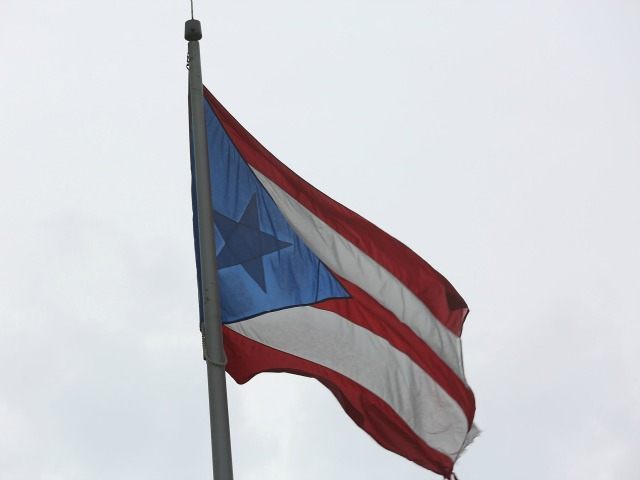The 3.4 million U.S. citizens on the Caribbean island of Puerto Ricans will vote today, for the fifth time, on a non-binding referendum to become independent or to apply to be America’s 51st state, despite already declaring bankruptcy last month.
Puerto Rico has a poverty rate of 45 percent, 12.4 percent unemployment, and 86 percent of residents do not speak English in the home, but the island receives $22 billion in federal subsidies. The top income tax rate is 4 percent and residents are exempt from paying $2 billion in federal income taxes. That explains why 61 percent of residents voted for statehood in 2012, but nothing happened.
As Breitbart News reported several weeks ago, Puerto Rico filed the largest municipal bankruptcy in the history of the United States on May 3. The island and its state-owned utility ran out of cash and defaulted on its $73 billion of debt. After the filing, Breitbart reported that Puerto Rico’s public pension plans only have $1.8 billion in assets to pay $45 billion in liabilities.
Christopher Columbus first arrived at Puerto Rico in 1493 and named the island San Juan Bautista. But after gold was discovered in a river, it was given the Spanish name for “rich port.” The conquistadors Spanish combined the labor of indigenous Taíno and Carib Indian people with African slaves to operate large sugar cane, coffee and tobacco farms.
After the Spanish-American War, Puerto Rico joined Cuba, the Philippines and Guam as war booty paid to the U.S. under the Treaty of Paris of 1898. Puerto Ricans received U.S. citizenship in 1917 and officially became a U.S. Commonwealth in 1952. The island is often referred to as the “Oldest Colony in the World.”
A U.S. District Court in New York City has jurisdiction over the congressionally mandated oversight board for Puerto Rico’s Title III bankruptcy. According to initial bankruptcy filings, the per capita debt for each man, woman and child in Puerto Rico is about $34,000. The island’s median household income was $18,626 in 2015, versus $56,500 for the U.S. mainland.
Much of the debt is now held by “vulture capitalist” hedge funds that bought bonds for as little as 25 percent of face value. The investors claim that Puerto Rico can regain its solvency by raising taxes and firing tens of thousands of public sector workers.
Bloomberg reported just as the Puerto Rico crisis began, investors and the island have fighting “over who owns cash collected by the government’s sales tax agency, known by its Spanish acronym Cofina.” The island claims that despite not making any bond payments, the island will miss payroll on November 1 if the sales tax is paid out to bondholders.
Breitbart News has suggested that Puerto Rico’s bankruptcy filing represents a massive liability risk for independent auditors, who will likely demand that highly-indebted states — such as Connecticut, Illinois and California — disclose more liabilities, write down assets, and curtail debt issues.
Greater accounting scrutiny of municipal and state finances will lead to credit rating downgrades and requirements for higher pension payments. That may explain why California Governor Jerry Brown warned in his 2017-2018 May Budget Revision update that California is expected to suffer a $20 billion tax crash in the next recession.

COMMENTS
Please let us know if you're having issues with commenting.